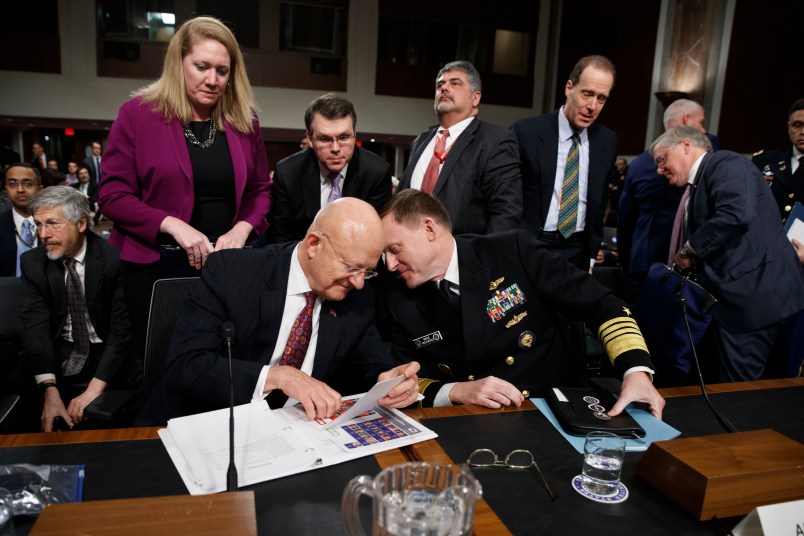A Senate Armed Services Committee hearing held Thursday on cyber threats to the United States provided an opportunity for leaders in the U.S. intelligence community to express some anxiety about how their agencies will fare in the incoming Trump administration.
Early in the hearing, Director of National Intelligence James Clapper said in response to a question from Sen. Jack Reed (D-RI) that he had not been consulted by Trump’s transition team on the reported effort they were planning to restructure the DNI and the CIA, said to be because Trump believed the organizations had become politicized.
Incoming White House Press Secretary Sean Spicer called that report from the Wall Street Journal “100 percent false” in a call with reporters Thursday morning, but he did say the transition team was involved in unspecified “information-gathering” and “discussions.”
Later in the hearing, Clapper told Sen. Jeanne Shaheen (D-NH) that, “if we’re going to reform or change the DNI or change CIA,” that he thought it would be helpful “that some attention be given to, in our case, the legislative underpinnings that established the DNI in the first place.”
“I certainly agree that Congress, no pun intended, gets a vote here,” he said.
When responding to an assertion from Sen. Claire McCaskill (D-MO) that Trump was “trashing the intelligence community,” Clapper seemed to agree.
“I think there is a line between healthy skepticism, which policy makers—to include policy maker number one—should always have for intelligence,” he said. “But I think there is a difference between skepticism and disparagement.”
Clapper said he “could not feel stronger” that the intelligence community should remain apolitical, pointing to his half century of experience in the field, including as a political appointee to presidents of both parties.
Asked by Sen. Martin Heinrich (D-NM) how Trump’s “inferred dismissive attitude” towards the intelligence community had affected morale, Clapper said “I hardly think it helps it.”
The director of the National Security Agency, Adm. Michael Rodgers, also said during the hearing that he was concerned about Trump’s impact on retaining highly-skilled personnel.
“I don’t want to lose good, motivated people who want to help serve this nation because they feel they aren’t generating value to help that nation,” he said. “I just don’t want a situation where our workforce wants to walk.”







